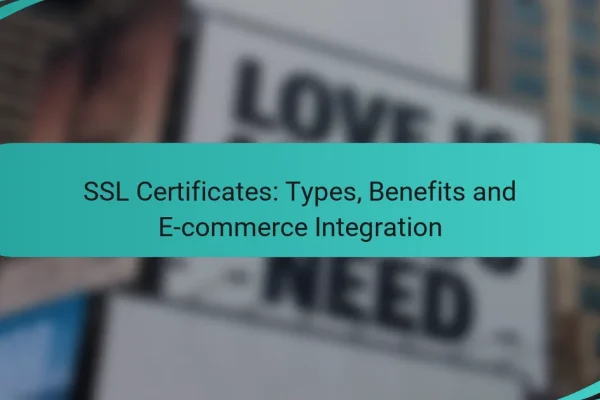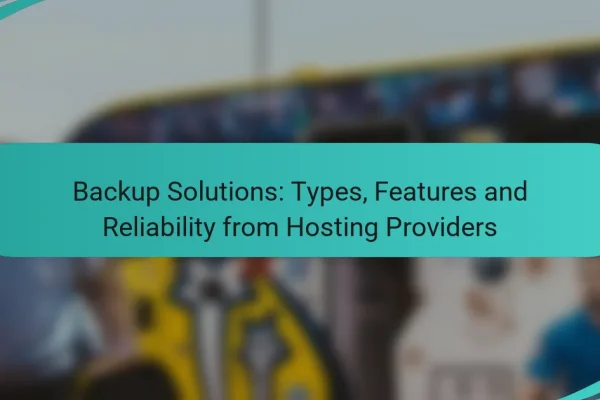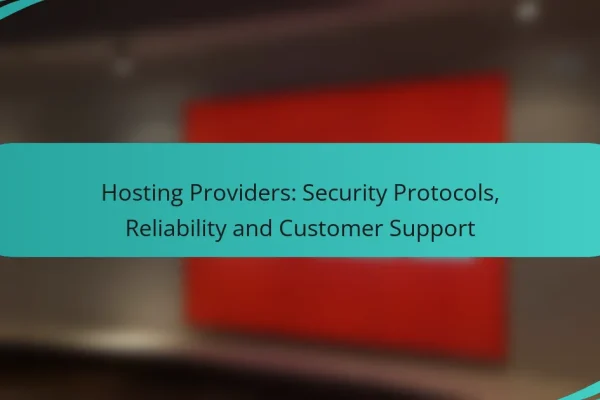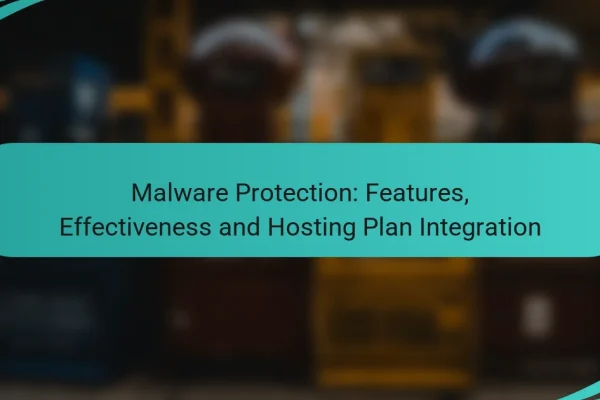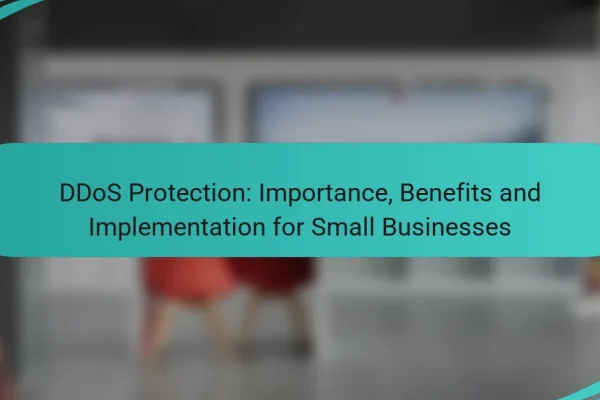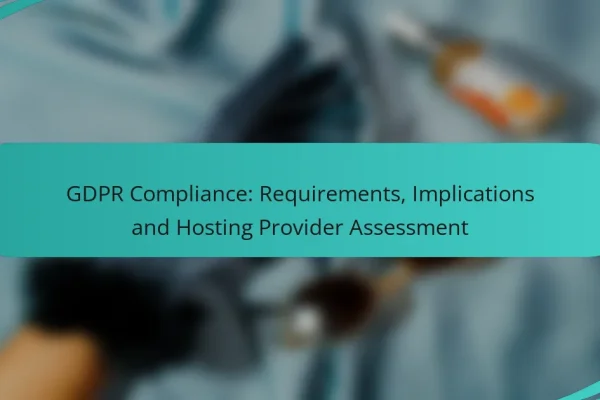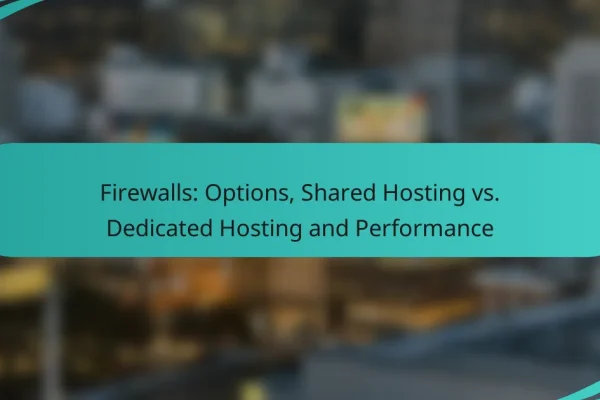What security features do Canadian hosting providers offer?
Canadian hosting providers typically offer a range of security features designed to protect websites and data. These features include SSL certificates, firewalls, DDoS protection, regular backups, and malware scanning, all aimed at enhancing the security posture of hosted services.
SSL certificates
SSL certificates encrypt data transmitted between a user’s browser and the server, ensuring secure communication. Canadian hosting providers often include SSL certificates as part of their packages, which is essential for e-commerce sites and any platform handling sensitive information.
When choosing an SSL certificate, consider factors like the level of validation (Domain Validation, Organization Validation, or Extended Validation) and the certificate’s compatibility with various browsers. Many providers offer free SSL certificates through Let’s Encrypt, making it easier for businesses to secure their websites.
Firewalls
Firewalls act as a barrier between a trusted internal network and untrusted external networks, filtering incoming and outgoing traffic. Canadian hosting providers typically implement both hardware and software firewalls to protect servers from unauthorized access and attacks.
When selecting a hosting provider, check if they offer managed firewall services, which can automatically update rules and monitor traffic for suspicious activity. This proactive approach can significantly reduce the risk of security breaches.
DDoS protection
DDoS (Distributed Denial of Service) protection helps mitigate attacks that aim to overwhelm a server with traffic, rendering it unavailable. Many Canadian hosting providers offer DDoS protection as part of their security features, which is crucial for maintaining uptime during an attack.
Look for providers that utilize advanced DDoS mitigation techniques, such as traffic filtering and rate limiting. Some may also offer additional services like traffic scrubbing, which cleans malicious traffic before it reaches your server.
Regular backups
Regular backups are essential for data recovery in case of data loss due to cyberattacks, hardware failures, or human error. Canadian hosting providers often include automated backup solutions, allowing users to restore their websites quickly and efficiently.
When evaluating backup options, consider the frequency of backups (daily, weekly) and the retention period for stored backups. Ensure that the provider offers easy restoration processes, so you can minimize downtime in case of an incident.
Malware scanning
Malware scanning helps detect and remove malicious software that can compromise website security. Many Canadian hosting providers incorporate malware scanning tools that regularly check for vulnerabilities and threats.
Choose a hosting provider that offers real-time malware scanning and automatic removal features. This proactive approach can help maintain the integrity of your website and protect your visitors from potential harm.
How do hosting providers ensure data privacy?
Hosting providers ensure data privacy through a combination of encryption, compliance with regulations, and robust security protocols. These measures protect sensitive information from unauthorized access and data breaches.
Data encryption
Data encryption is a critical tool used by hosting providers to safeguard information. It converts data into a coded format that can only be read by authorized users with the correct decryption key. This process is essential for protecting data both at rest and in transit.
Common encryption standards include AES (Advanced Encryption Standard) and TLS (Transport Layer Security). When selecting a hosting provider, ensure they utilize strong encryption methods to enhance your data’s security.
GDPR compliance
GDPR compliance is vital for hosting providers operating in or serving clients in the European Union. The General Data Protection Regulation mandates strict guidelines for data handling, ensuring that personal information is processed lawfully and transparently.
Hosting providers must implement measures such as data minimization, user consent, and the right to access personal data. When choosing a provider, verify their GDPR compliance to ensure they adhere to these important privacy standards.
What are the best practices for choosing a secure hosting provider?
Choosing a secure hosting provider involves assessing their security features, certifications, and customer feedback. Prioritize providers that demonstrate a strong commitment to security through recognized standards and positive user experiences.
Evaluate security certifications
Security certifications indicate a hosting provider’s adherence to industry standards and best practices. Look for certifications such as ISO 27001, PCI DSS, and SSAE 18, which reflect a commitment to data protection and risk management.
When evaluating these certifications, check if they are current and relevant to the services you require. A provider with multiple certifications may offer a more robust security posture, reducing your risk of data breaches.
Check customer reviews
Customer reviews provide insight into a hosting provider’s reliability and security performance. Look for feedback specifically mentioning security incidents, response times, and overall satisfaction with the provider’s security measures.
Utilize platforms like Trustpilot or G2 to gather a range of opinions. Pay attention to patterns in reviews, such as repeated mentions of security issues or praise for effective support during incidents, as these can guide your decision-making process.
What are the risks of inadequate hosting security?
Inadequate hosting security can lead to significant risks, including data breaches and downtime. These vulnerabilities can compromise sensitive information and disrupt service availability, impacting both business operations and customer trust.
Data breaches
Data breaches occur when unauthorized individuals gain access to sensitive information stored on a hosting server. This can happen due to weak passwords, outdated software, or lack of encryption. For businesses, a data breach can result in financial losses, legal penalties, and damage to reputation.
To mitigate the risk of data breaches, implement strong password policies, regularly update software, and utilize encryption for sensitive data. Consider using multi-factor authentication as an additional layer of security. Regular security audits can also help identify and address vulnerabilities before they are exploited.
Downtime
Downtime refers to periods when a website or application is unavailable due to server issues, often caused by security incidents or inadequate protection. This can lead to lost revenue and decreased customer satisfaction. Even a few minutes of downtime can have significant repercussions for businesses, especially those that rely on online transactions.
To minimize downtime risks, choose a hosting provider that offers robust security features, such as DDoS protection and regular backups. Establish a disaster recovery plan to quickly restore services in case of an incident. Monitoring server performance and security can also help detect potential issues before they lead to downtime.
How do Canadian hosting providers compare in terms of security?
Canadian hosting providers generally prioritize security by implementing robust measures such as data encryption, firewalls, and regular security audits. Many also comply with local regulations, which can enhance data protection and user trust.
Provider A vs Provider B
Provider A offers advanced DDoS protection and automatic backups, ensuring minimal downtime and data loss. Their security protocols include regular vulnerability assessments and compliance with Canadian privacy laws.
In contrast, Provider B focuses on user-friendly security features, such as one-click SSL installation and a built-in web application firewall. While they provide solid security, their offerings may lack the depth of Provider A’s proactive measures.
Provider C vs Provider D
Provider C emphasizes physical security with data centers that have 24/7 surveillance and access controls. They also provide end-to-end encryption for data in transit and at rest, which is crucial for sensitive information.
Provider D, however, excels in customer support, offering 24/7 assistance for security-related issues. Their security features include malware scanning and removal, but they may not have the same level of physical security as Provider C.
What emerging security trends should hosting providers adopt?
Hosting providers should adopt trends such as zero trust architecture, enhanced encryption methods, and AI-driven security analytics. These trends focus on minimizing vulnerabilities and proactively identifying threats to ensure robust security for hosted services.
Zero Trust Architecture
Zero trust architecture is a security model that requires strict verification for every user and device attempting to access resources, regardless of their location. This approach minimizes the risk of unauthorized access and data breaches by assuming that threats could be both external and internal.
Implementing zero trust involves continuous monitoring, identity verification, and least privilege access. Hosting providers should consider tools that support multi-factor authentication and real-time access controls to reinforce this model.
Enhanced Encryption Methods
Enhanced encryption methods are crucial for protecting data both at rest and in transit. Hosting providers should implement strong encryption protocols, such as AES-256, to safeguard sensitive information from unauthorized access and cyber threats.
Additionally, using TLS (Transport Layer Security) for data in transit ensures that information exchanged between users and servers remains secure. Regularly updating encryption standards and practices is essential to stay ahead of evolving threats.
AI-Driven Security Analytics
AI-driven security analytics leverage machine learning to detect anomalies and potential threats in real-time. Hosting providers can use these advanced analytics to identify patterns that may indicate a security breach, allowing for quicker responses to incidents.
Investing in AI tools can help automate threat detection and response processes, reducing the burden on security teams. Providers should evaluate solutions that integrate seamlessly with existing infrastructure to enhance overall security posture.
